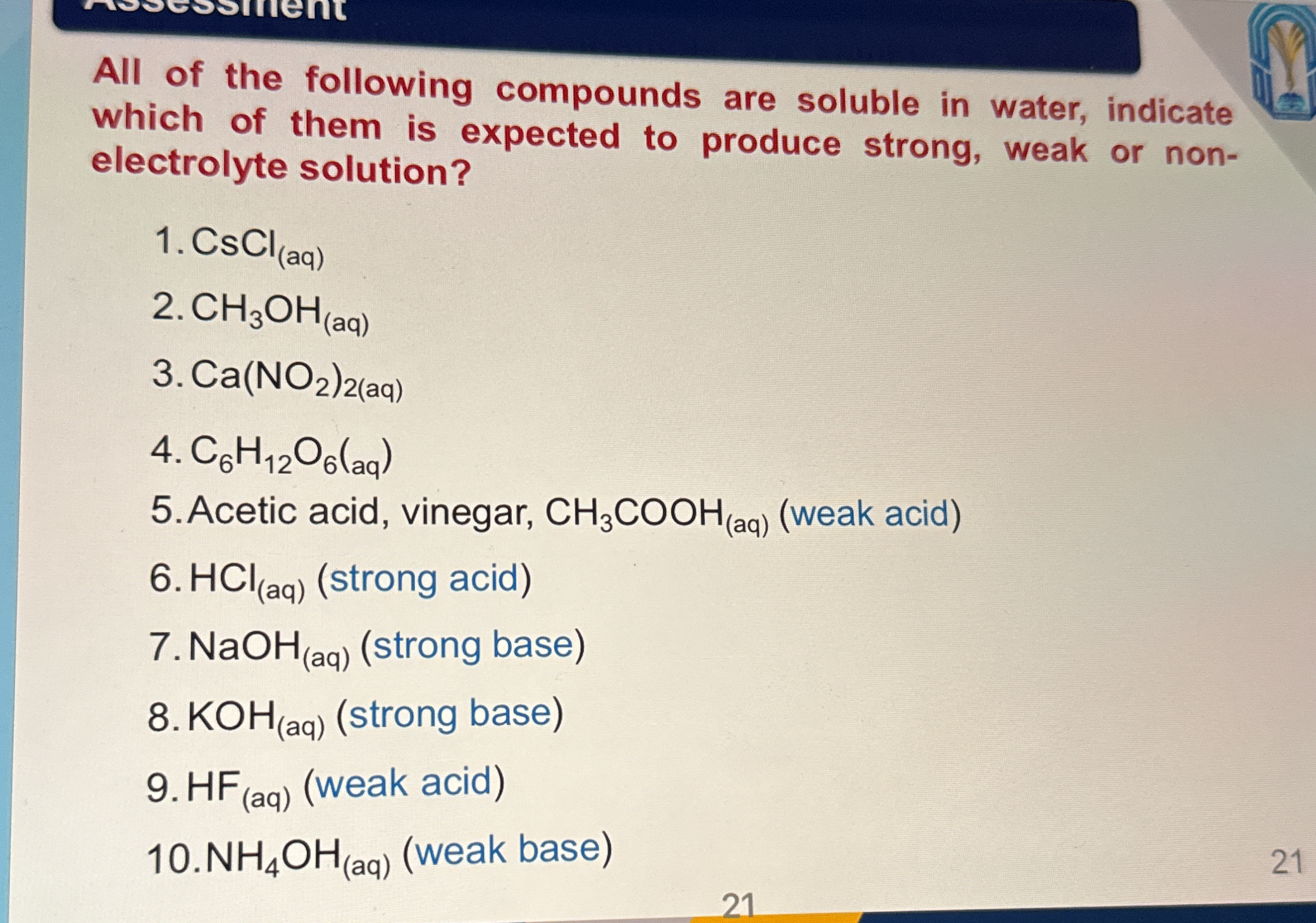All of the following compounds are soluble in water. Indicate which of them is expected to produce a strong, weak, or non-electrolyte solution.

Understand the Problem
The question is asking which of the listed soluble compounds in water is expected to produce a strong, weak, or non-electrolyte solution. This requires understanding the classification of electrolytes based on their dissociation in water.
Answer
1. Strong, 2. Non, 3. Strong, 4. Non, 5. Weak, 6. Strong, 7. Strong, 8. Strong, 9. Weak, 10. Weak
The classifications are:
- CsCl - Strong electrolyte
- CH₃OH - Non-electrolyte
- Ca(NO₃)₂ - Strong electrolyte
- C₆H₁₂O₆ - Non-electrolyte
- CH₃COOH (Acetic acid) - Weak electrolyte
- HCl - Strong electrolyte
- NaOH - Strong electrolyte
- KOH - Strong electrolyte
- HF - Weak electrolyte
- NH₄OH - Weak electrolyte
Answer for screen readers
The classifications are:
- CsCl - Strong electrolyte
- CH₃OH - Non-electrolyte
- Ca(NO₃)₂ - Strong electrolyte
- C₆H₁₂O₆ - Non-electrolyte
- CH₃COOH (Acetic acid) - Weak electrolyte
- HCl - Strong electrolyte
- NaOH - Strong electrolyte
- KOH - Strong electrolyte
- HF - Weak electrolyte
- NH₄OH - Weak electrolyte
More Information
Electrolytes dissociate into ions when dissolved in water. Strong electrolytes fully dissociate, weak partially dissociate, and non-electrolytes do not dissociate.
Tips
A common mistake is confusing electrolytes. Strong acids/bases and ionic salts are strong electrolytes. Weak acids/bases partially dissociate.
Sources
AI-generated content may contain errors. Please verify critical information